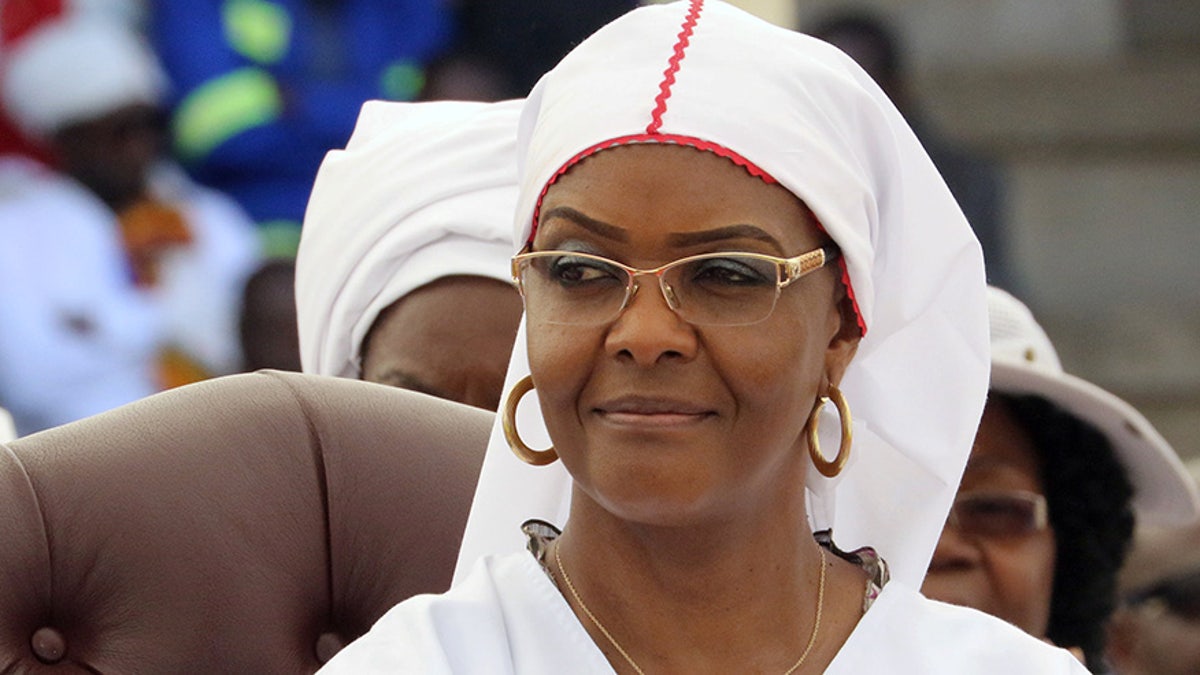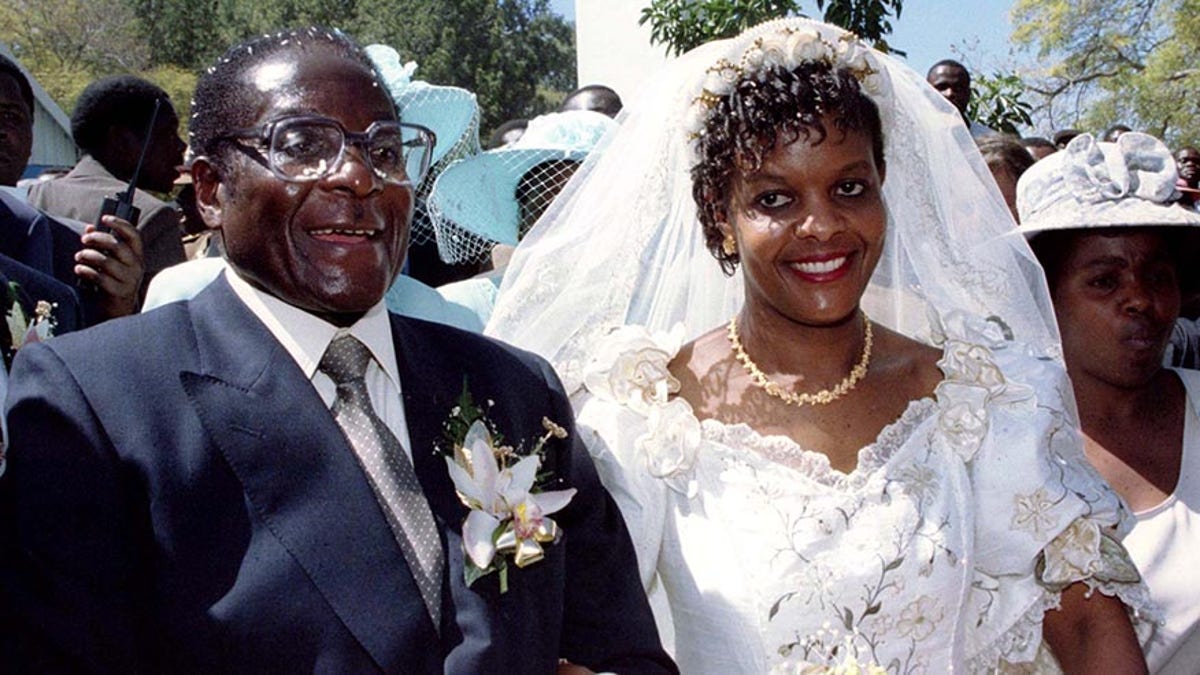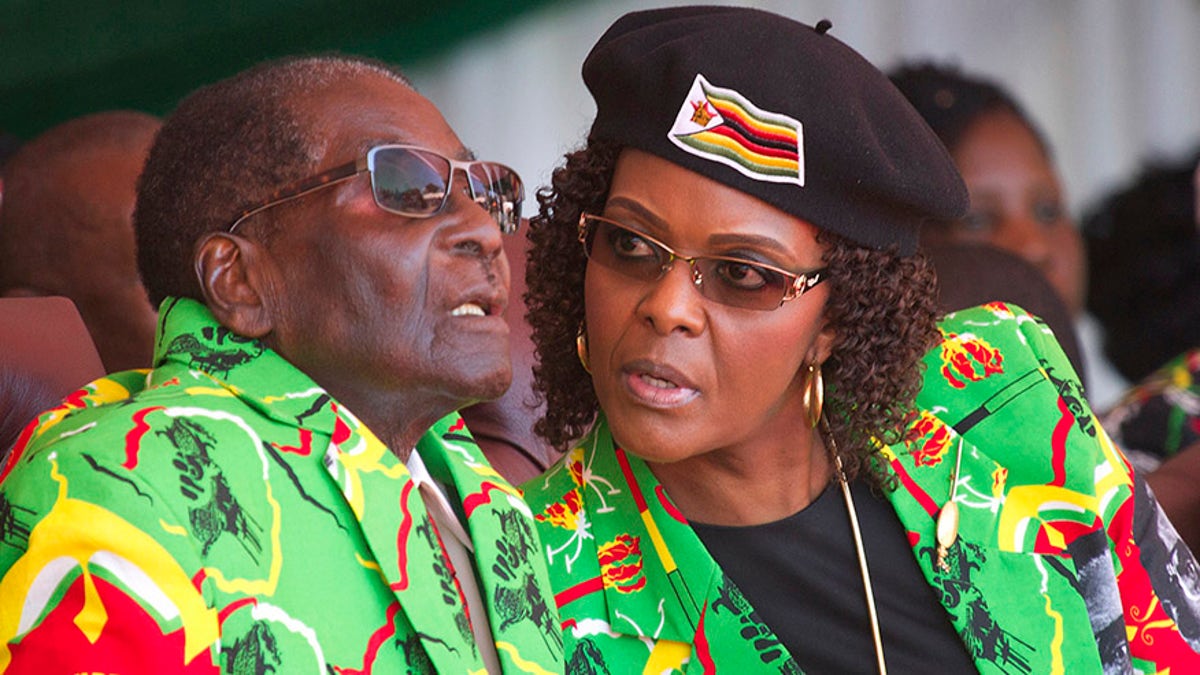
Grace Mugabe's rise to power appears to have triggered what appears to be the end of her husband's 32-year rule in Zimbabwe. (Reuters)
The decision by embattled Zimbabwe President Robert Mugabe to prepare his government for the days when he no longer rules has brought about the apparent end of that controversial rule itself.
The sacking last week of his Vice President was a seeming bid to pave the way for the 93-year-old Mugabe's reviled wife to assume the presidency -- setting up a dynastic succession -- and likely prompted Zimbabwe's military to finally step in.
Grace Mugabe’s political profile has soared in the past few years as the 52-year-old has positioned herself as her husband’s successor – even publicly challenging him earlier this year to officially name one.
She's been dubbed "Gucci Grace" due to her extravagant spending and twice used diplomatic immunity as a shield from accusations of assaulting a British photographer in Hong Kong and whipping a South African model with an electrical cord.
Grace, however, was not always such a polarizing, high-profile figure.
US ‘DEEPLY CONCERNED’ ABOUT POLITICAL SITUATION IN ZIMBABWE
Born in Benoni, South Africa, Grace grew up in a dusty mining town to the east of Johannesburg -- a town which also spawned actress Charlize Theron.
While married to an air force pilot, Grace met the much older president years ago when she served as a secretary in his office.
“He came to me and started asking about my family,” she told South African journalist Dali Tambo in 2013, in a rare interview. “He just started talking to me, asking me about my life. Were you married before, things like that…I didn’t know it was leading somewhere. I was quite a shy person, very shy.”
Despite the various obstacles before them -- including a 41-year age gap and the fact that Robert Mugabe was still married to his first wife, Sally – the president wooed his future wife over tea and scones.

Robert and Grace Mugabe's extravagant wedding in 1996 came after they had an affair while both still married to other people. (Reuters)
“I felt a bit uncomfortable when he proposed to me since he was still married to Sally,” Grace said.
Sally, who was suffering from a terminal illness, died in 1992. Four years later, Mugabe and Grace married in an extravagant ceremony attended by 40,000 people -- including former South African leader Nelson Mandela.
By the time of their wedding, the couple already had two children, and a third arrived a year later.
According to analysts, Grace seemed to struggle to emerge from the shadow left behind by the president’s first wife and mostly kept to herself. She focused primarily on her charity work and rarely got involved in politics herself.
Grace has also became a powerful businesswoman. While she has run several failed mining businesses, Grace built her own dairy farming empire on five farms previously owned by white Zimbabweans. The former owners had been evicted from their lands during the country’s controversial “land reform” process.

Grace Mugabe has positioned herself to be the only successor to her husband, Zimbabwean President Robert Mugabe. (AP)
In 2014, she raised eyebrows by getting a PhD in sociology from the University of Zimbabwe in just two months. Her thesis, unlike those of other students, was never filed and has never been made available.
Since then she's become fully engaged in the political world, pulling no punches when attacking political opponents or fiercely defending her husband. She also became the head of the ruling party’s women’s league – a position that gave her a seat on the party’s decision-making body.
Grace Mugabe’s rise to power has also been marred with international scandals, including earlier this year when a South African model accused Grace of whipping her with an extension cord in a Johannesburg hotel room. The first lady was granted diplomatic immunity by South Africa despite calls for her prosecution. She later accused the 20-year-old of being the aggressor.
Additionally, in 2008, the first lady escaped charges, again through diplomatic immunity, after allegedly assaulting a British journalist who tried to photograph her while she was shopping in Hong Kong.
"Her controversies will not do much to stop her," Harare-based political analyst Alex Rusero said. "In [the ruling party], they seem to be accepting her as her husband's successor. The problem might be getting the support of other Zimbabweans who feel she is simply not presidential material."
Most recently, Grace Mugabe has taken a front row seat in political conversations, including openly criticizing Vice President Emmerson Mnanagawa and accusing him of allegedly plotting to oust her husband.
“So I have said to the president, you can also leave me in charge. You can also give me your position. Give me the job and I will do it very well because I am good. I can do a great job," Grace said in a recent speech.
She appears to have the support of the ruling party's youth wing and led a faction of party leaders in their 40s and 50s amid a growing generational divide.
Despite Grace's vocal support of her husband and his nearly four-decade reign, she has remained deeply unpopular with the wider Zimbabwe population, who have been incensed by reports of her extravagant spending.
Grace's legendary and lavish shopping sprees even garnered her the nickname “Gucci Grace” from her critics. On one shopping expedition, she reportedly racked up a $98,000 bill.
Last month, the first lady approached a Harare court to recover more than $1 million she said she paid for a 100-carat diamond ring.
In the meantime, Zimbabwe remains in a tense standoff between supporters of the president and the army, who on Wednesday took control of the state-run television and placed the president in home arrest.
Mugabe was shown meeting Thursday with the army commander who put him under house arrest, as negotiations with a South African delegation and a Catholic priest at the state house sought a resolution to the political turmoil.
The state-run Zimbabwe Herald newspaper published what it called new photos of the meeting, saying details were to come. One showed Mugabe and the army commander shaking hands. The photos did not show the first lady.
Zimbabwe's ruling party is scheduled to hold a key congress in December.
The Associated Press contributed to this report.




















